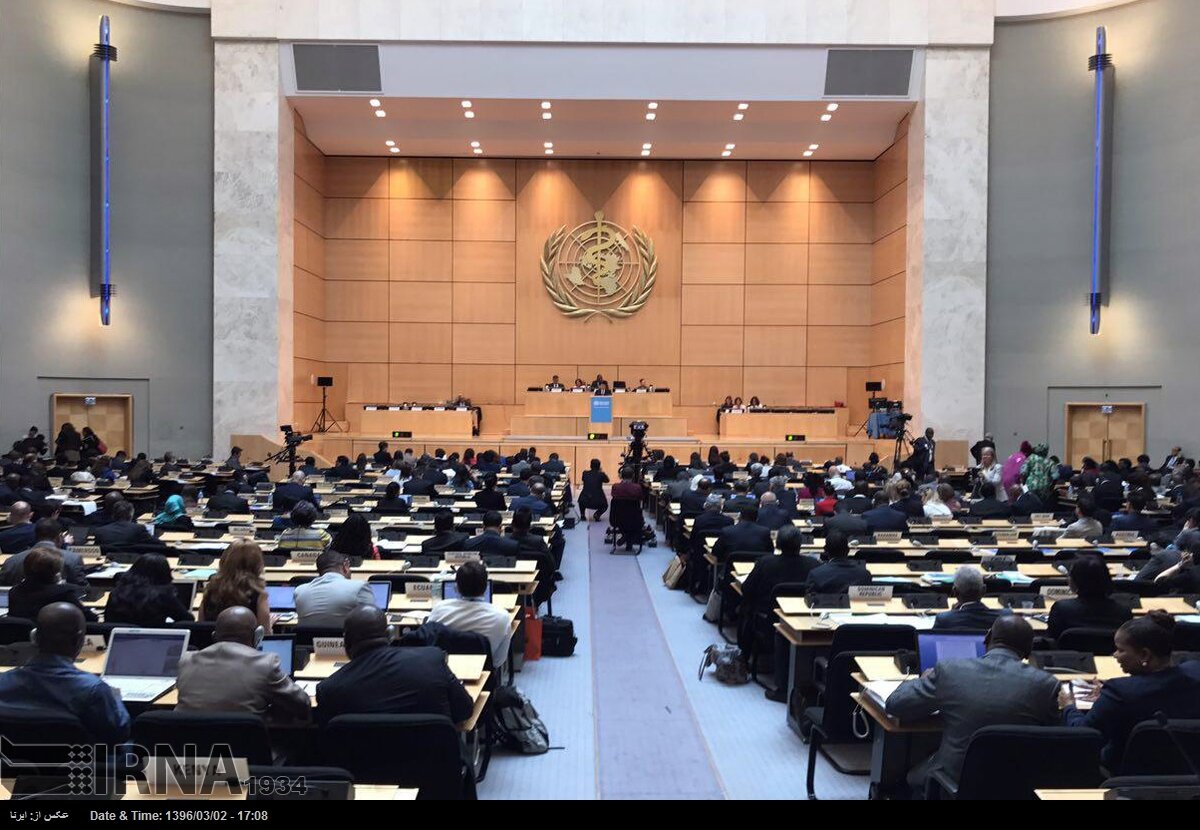Iran aims to promote health diplomacy at WHA

TEHRAN – The seventy-sixth World Health Assembly is being held in Geneva, Switzerland, on May 21–30 with Health Minister Bahram Einollahi in attendance.
The minister is scheduled to hold meetings, ink agreements, and report on the country’s development in the health sector with the framework of promoting health diplomacy.
On the sidelines of the WHA, a meeting of the G5 countries (Afghanistan, Iran, Iraq, Pakistan, plus the World Health Organization) will be held.
The theme of this year’s Health Assembly is: WHO at 75: Saving lives, driving health for all.
During the seventy-sixth World Health Assembly, a series of strategic roundtables are being held. During these sessions, WHA delegates, partner agencies, representatives of civil society, and WHO experts will discuss current and future priorities for public health issues of global importance.
The World Health Assembly is the decision-making body of WHO. It is attended by delegations from all WHO Member States and focuses on a specific health agenda prepared by the Executive Board. The main functions of the World Health Assembly are to determine the policies of the Organization, appoint the Director-General, supervise financial policies, and review and approve the proposed program budget. The Health Assembly is held annually in Geneva, Switzerland.
Iran’s health achievements
Ricardo León-Bórquez, the president of the World Federation of Medical Education, has praised Iran for progress in the health sector, saying that the country’s achievements are amazing.
Iran has paid much attention to the importance of medical education and can be one of the key members of the World Federation of Medical Education in the accreditation process, he added.
He made the remarks in a meeting in Tehran with Health Minister Bahram Einollahi, noting that the accreditation process of medical education, which was started by WFME in Iran in 2019, has progressed very well and Iran is moving in the right direction in this field.
Previously, Einollahi said many countries in the region are asking Iran for help with issues related to health.
Emphasizing that all diseases are currently treated in the country, the minister added: “With the help of scientists, we were able to educate efficient human resources,” ISNA reported.
“With the efforts that have been made during the 44 years after the victory of the Islamic Revolution, today we have the strongest health system in the region in such a way that the health indicators in the Islamic Republic are far ahead of other countries in the region.”
All the indicators of health and treatment have made significant progress after the Islamic Revolution, and now Iran is one of the leading countries in this field, Saeed Karimi, the deputy health minister has said.
Health is one of the areas that got a good jump after the Islamic Revolution, ISNA quoted Karimi as saying.
It should be noted that in the early years of the Revolution, even for a cataract, which is a routine ophthalmic operation, the patient was sent abroad, but now patients from abroad come to Iran for the most advanced surgeries, he highlighted.
“At the beginning of the Revolution, there were just 56,000 hospital beds, but now we have 156,000 hospital beds,” he noted.
Meanwhile, there were just seven thousand specialists, but now there are 70 thousand specialists and sub-specialists in the country, he added.
In June 2021, Ahmed al-Mandhari, the World Health Organization director for Eastern Mediterranean Region, said the Islamic Republic of Iran is a role model for primary health care.
For the past four decades, its PHC network has aimed to ensure that people have timely access to affordable, accessible, and acceptable essential health services, he explained.
Syed Jaffar Hussain, the World Health Organization Representative and Head of Mission in Iran has appreciated the country for its efforts to enhance health security in the region.
In October 2021, Jaffar Hussain said that Iran's health system can be a model for other countries in the region, especially in the field of health and the use of valuable forces such as healthcare providers.
The national budget bill for the current Iranian calendar year 1402, which started on March 21, has increased the health sector’s budget by 29 percent compared to the current year’s budget.
The bill has proposed a budget of 2,730 trillion rials (about $6.8 billion) for the Ministry of Health, IRNA reported.
The administration has also proposed 690 trillion rials (about $1.7 billion) as subsidies to provide medicine by health industries.
MG
